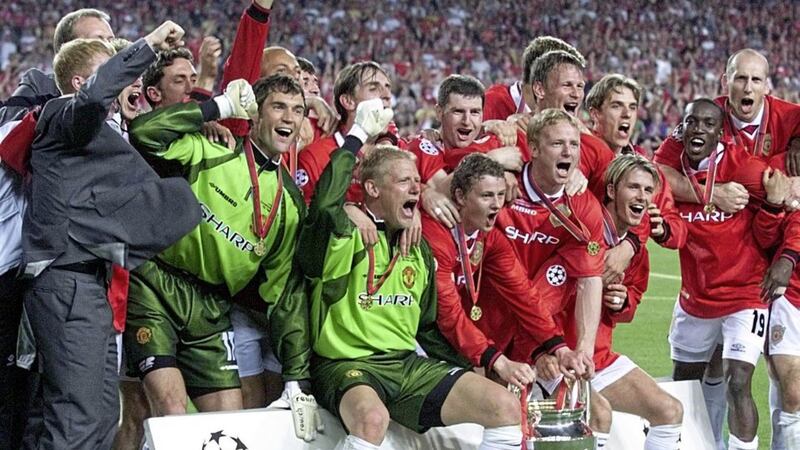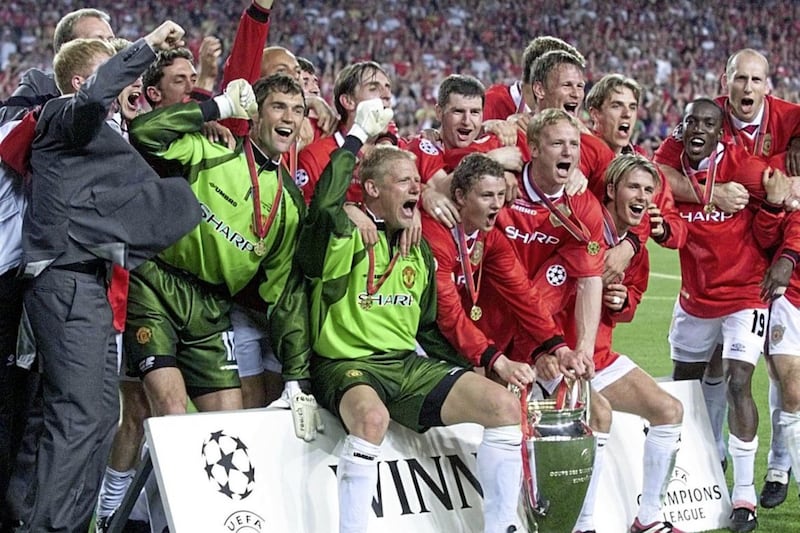IN Search of Lost Time has become Remembrance of Things Past – and there’s no debate that the latter is better than the former.
There may always be an argument about which of those is the most appropriate/ accurate translation of the French title of that famous multi-volume novel by Marcel Proust but there can be little doubt that revisiting history has been one of the upsides of lockdown.
Sport usually moves so fast that there’s little chance to assess even the very recent past never mind the achievements of 10, 20, or 30 years ago, or even further back.
Until March, no one seemed to have the time to stop; we were always looking forward, on to the next game, the next season, the next challenge.
The absence of sport has given us pause, though, allowed an appreciation not only of its current value but also a chance to recognise what we had before, what it meant.
All those ‘top 15s’ or ‘best XIs’, in Gaelic games, rugby, soccer, and hockey, as well as ‘best ever’ debates in all sports, have brought back some names that may have been almost forgotten or overlooked for years.
Whether the criteria have involved clubs, counties, provinces, countries, continents, worlds, people whose first name began with the same letter as the previous player’s surname, whatever, the effect has been the same: the past has been brought alive, a spotlight shone on many who would otherwise never get any attention.
Some of them may only have been local legends rather than global greats but all played their part in people’s hearts.
Keeping memories alive is important, indeed it can be literally true for those whose neurons aren’t firing as well as they once did; scientific studies have shown that talking of games and names from the past can revive brains, spark recollections and conversations among those who appear lost in the fog of dementia.
There are others benefits too. Nowhere is parochial pride fiercer and finer than in the GAA, but it’s only in recent years that players leaving the inter-county scene have received much attention. That’s possibly gone overboard with those slick farewell messages choreographed by the GPA, but that’s still preferable to some stalwart slipping away from the sidelines with barely any acknowledgement, as was often the case in the past.
An old photograph, even a name in print (or online) can means so much to families. I received a lovely email from a daughter of the late, great Joe Jordan, Armagh GAA chairman during their glory days, when his picture appeared in this column; seeing his face, his smile, lifted their spirits.
It’s not just those we have loved and lost who should be recalled either: there are still many tales to be told by the sporting stars of old, if we just take the time to listen to them and pass them on to the public.
Some of the greatest fun I’ve had recently has been talking to former Down and Antrim hurling boss Sean McGuinness, picking his top 15 and picking his brain about his life and career.
We at The Irish News know how fortunate we are to have so many accommodating interviewees, not just when they’re stuck at home bored with no work to go to or do, but long before any of use ever heard of lockdowns or furloughs or the dreadful Covid-19.
However, compared to when I first set foot in Donegall Street (in 1998, fact fans) there have been more limits placed on players, fewer opportunities for interviews, both pre- and post-match.
Most sports people are, intelligent, interesting, and confident enough to speak to the media if they’re allowed to do so, but too often their lips are sealed by over-zealous bosses or media managers.
Sportspeople can be more open, honest, and revealing after their playing careers, but it’s still a pity to deny them their place in the spotlight during their heyday on the spurious basis that an interview might actually influence what happens on the track or field.
Scrapbooks are meaningful to families and clubs, to supporters – and to (at least some) players themselves. Any time I speak to former Down hurler Graham Clarke he recalls an interview I did with him many moons ago.
Of course it will be great to have sport back, fully, properly, with supporters in the grounds.
Although I may suffer from literary pretension, I also enjoy the tension that only sport can provide.
However, even when we’re back on the familiar merry-go-round of build-ups, previews, reports, follow-ups, build-ups, previews, reports, follow-ups, we should still take the time to step back and cast the occasional eye on the past.
It doesn’t have to be a subtle Proustian rush occasioned obliquely by a glimpse of an old jersey or the sound of an old chant, the smell of Wintergreen or the taste from biting into a chunk of orange, or a biscuit dipped into your tea.
There’s nothing wrong with deliberately bringing back the past, reliving those olden, golden days.
Recency bias might needle at former greats but an inability to comprehend historical context only results in sounding like someone who suggests that Take That/ Boyzone/ Westlife/ Busted/ McFly/ One Direction are, like, actually better than The Beatles or The Stones. Never mind CCR or The Band.
Equally, those plagued by nostalgia can under-estimate the qualities of present-day players.
All that’s needed is some time to consider.
Having started with the prose of Proust, let’s end with some poetry:
‘What is this life if, full of care,
We have no time to stand and stare.’


